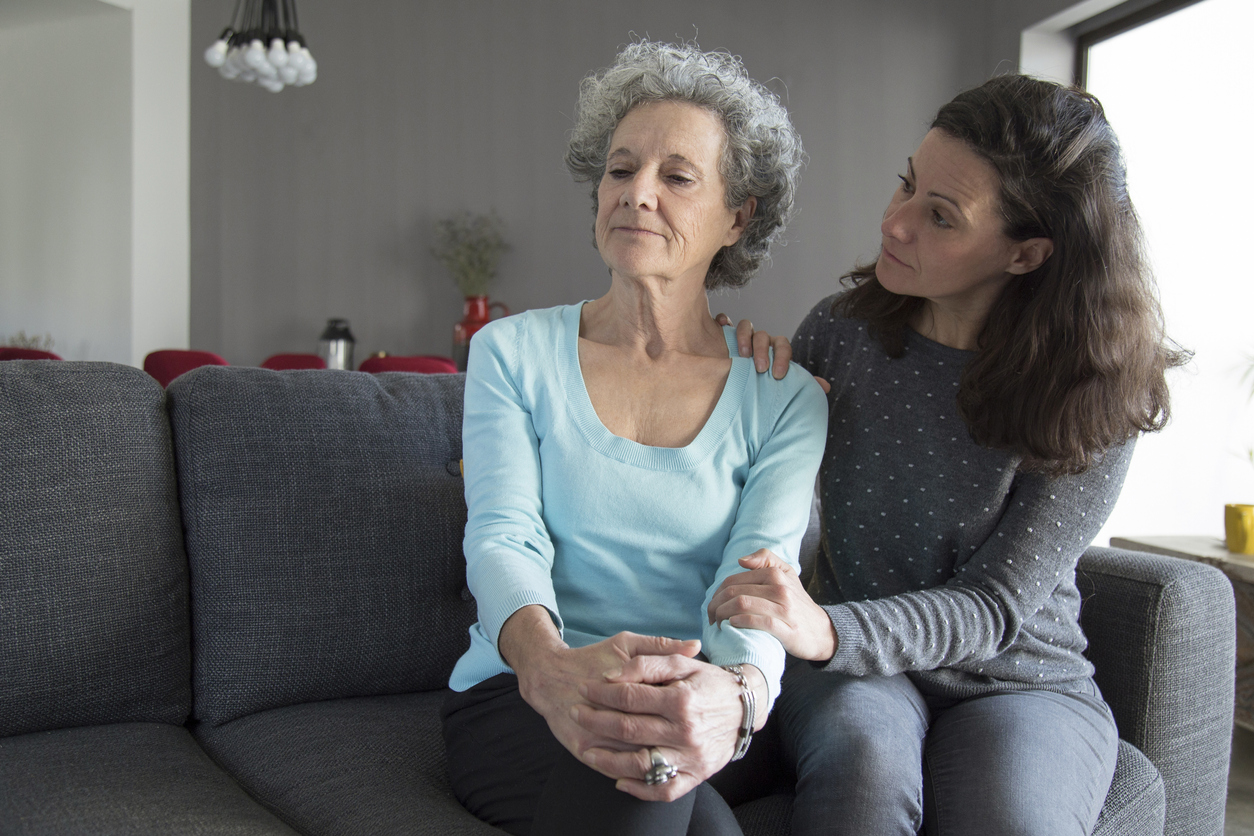Fear of cancer coming back (recurrence)

Many people expect to feel relieved and happy when they finish their cancer treatment. But these feelings may be mixed with anxiety and fear about the future. A common concern for cancer survivors is that the cancer may come back (recur) in the future.
For many, this fear will lessen over time. Some people may experience increased fear at times such as follow-up appointments and investigations.
When cancer treatment finishes, many people have to adjust to the reduced number of appointments and follow-ups with their team. Some people feel lost and alone at this stage. You can continue to contact your team or your GP if you have any questions or concerns.
How fear of recurrence can affect you
A fear of recurrence can affect you both emotionally and physically. Some people may experience emotions such as worry, fear, anger and sadness. This fear can affect the way people behave and how they respond to situations. Some people may be on high alert and others may avoid following up on concerns or avoid talking about cancer.
Certain situations and events can trigger feelings of fear about recurrence:
- Around the time of appointments, scans and tests
- When you have new symptoms or symptoms similar to those when you were first diagnosed
- When other people are diagnosed with cancer
- The death of a family member of friend
- Reading or hearing media reports about cancer
- Visiting the hospital you were diagnosed or treated in
Knowing what situations make you worried can help. Recognising these situations and emotions will help you to develop coping mechanisms. It is natural to get worried at certain times but not every symptom is recurrence.

Coping with fear of recurrence
Talk about it
- Talking with a friend or family member about your feelings may help to ease some of the fear. Talking things over can help you make sense of your fears and the reasons behind them.
- Talking to others who have been through similar experiences and who understand the fear of recurrence can also be helpful. You can speak with others at support group meetings at your local cancer support centre or through the Irish Cancer Society Peer Support Programme. Call our cancer nurses on Freephone 1800 200 700 if you would like to be put in touch with a Peer Support volunteer or if you need help finding support.
- Talking to a counsellor may also help you. We fund free counselling through many cancer support centres and online. Call our Support Line or visit a Daffodil Centre for information. More about counselling.
- Talking to doctors and nurses about your concerns and fears may help you to understand more about recurrence and to put your worries into perspective. Our cancer nurses will also be happy to listen and give information and support. You can call the nurses on Freephone 1800 200 700 or visit a Daffodil Centre.
Understand your follow-up care
- Get to know your follow-up care plan and ask any questions if you're not sure about any part of it. You may not feel like going to follow-up appointments, especially if you are feeling anxious. But follow up can give you the chance to ask any questions you have, discuss any health problems and worries you have and have any recommended check. Knowing that your team is monitoring you closely can help reduce the fear of recurrence. Even when you do not have the same in-person contact with your team, it is important to know that you can still contact them with any concerns.
Prepare for times when you might feel more worried
Feeling anxious before follow-up tests and leading up to appointments is normal. Keeping busy and scheduling activities you enjoy may help distract you and reduce your anxiety in the days leading up to these appointments.
For more information
Phone
1800 200 700



